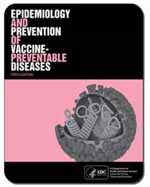
The American Baby – A Victim of Corporate Profits?
The American Council on Science and Health – the food industry’s new lobby – celebrates the International Year of the Child with a feature article in the August American Babymagazine; some of it is quoted below:
As is frequently the case when the cause of an illness is unknown, treatment fads come along, and new ones for hyperactivity are constantly springing up. Because no fully effective cure exists, parents grasp at each new theory with a hope borne of desperation.
Later, in reference to studies done by “scientists” (who? where? when?) the author states:
These experiments proved without a doubt that salicylates, artificial colors and artificial flavors do not have a dramatic effect on behavior.
However the evidence does indicate that a few hyperactive children, on the order of a fraction of one percent, may experience adverse reactions to one or several ofthe large number of artificial colors and thousands of flavors, as some few have reactions to milk, chocolateand strawberries.Hyperactivity will continue to be a discouraging, heartbreaking problem until research resolves the question of its cause and develops an effective treatment. We do know now, however, that diet is not the answer. It is clear that the symptoms of the vast majority of children labeled “hyperactive” are not related to salicylates, artificial food colors, and artificial flavors. The Feingold diet creates extra work for the homemaker and changes the family lifestyle, but it doesn’t cure hyperactivity.
The author, Margaret Sheridan, is a graduate of the Harvard School of Public Health (funded by General Foods) and is employed by the American Council on Science and Health. Elizabeth Whelan is a contributing editor.
The average reader of American Baby magazine would not be aware that the American Council on Science and Health was recently formed by Elizabeth Whelan and Frederick Stare to protect the interests of the food industry. The ideological (and financial) ties they have with the major food corporations was detailed in our June newsletter.
Anti-Feingold articles are nothing new to this association. Some — like the ones which claim that our kids are hyperactive because we ignore them — are downright funny. But articles like this in a baby magazine aren’t funny.
The only effect such an article could have would be to encourage mothers to use synthetic colors and flavors. And a person who weighs only seven and a half pounds is so terribly vulnerable.
Considering that the manufacturers of baby foods have removed unnecessary additives from their products; and drug companies are removing synthetic coloring from some of their pediatric medications, lobbying such as this is an insult to the responsible members of the industry.
American Baby magazine . . . it’s an appropriate name. Only in American can a baby be fed such an array of coal tar dyes and petroleum derivatives. In most other countries, these chemicals are either unavailable or illegal
***
Editorial note: We tried, unsuccessfully, to get through to Judith Nolte, Editor, to express the Association’s point of view. We also tried to call the American Association for Maternal and Child Health. The receptionist at American Baby thought they were “somewhere upstairs,” but couldn’t tell us any more than that. The New York telephone company has no listing for them.
Postscript: The August 27 issue of People magazine has a story on Elizabeth Whelan which includes the following paragraph:
Dr. Sidney Wolfe, director of Ralph Nader’s Health Research Group, is outraged by, among other things, Whelan’s claims on (the harmlessness of) saccharin: “No responsible scientist has said that it is safe. It is clearly a carcinogen,” says Wolfe. Adds Wayne L. Pines, information director of the Food and Drug Administration: “Whelan just makes blanket endorsements of food additives. Her organization is a sham, an industry front.”




















